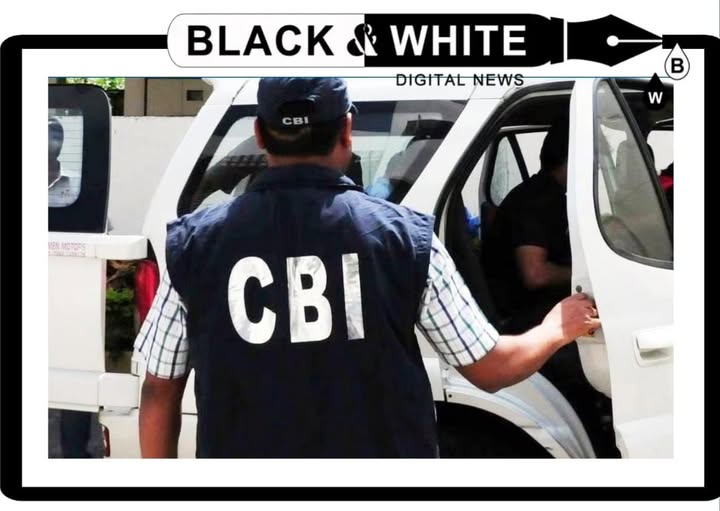CBI’s 11th Successful Trap of 2025 in Jammu: Understanding the Case and Its Wider Implications
||Black and White Digital News ||
||Parvinder Singh November 17,2025 ||
The Central Bureau of Investigation (CBI), Anti-Corruption Branch (ACB) Jammu, executed yet another successful trap operation on November 17, adding to its growing list of anti-corruption actions this year. The operation culminated in the arrest of Satyendra Kumar, a Social Security Officer posted at the office of the Regional Director, Employees State Insurance Corporation (ESIC), Shastri Nagar, Jammu, for allegedly accepting a bribe.
Background of the Complaint:
The case originated from a complaint filed earlier the same day.
The complainant’s wife owned a housekeeping firm, M/s Krishna & Sons, which reportedly never became operational after its establishment.
Despite the absence of commercial activity, the firm allegedly began receiving repeated Section 45 notices related to non-deposit of contributions to ESIC.
When the complainant approached the concerned ESIC official for clarification, an alleged demand for an illegal gratification was made to “resolve” the issue.
During the verification process conducted by CBI, the bribe amount was reportedly negotiated to ₹9,000.
This verification provided the necessary basis for registering an FIR (RC0042025A0014) and setting the trap.
In the presence of independent witnesses—an essential procedural requirement meant to ensure transparency—the CBI laid a trap to catch the official in the act.
Satyendra Kumar was apprehended allegedly accepting the negotiated bribe from the complainant.
Immediately after the arrest, a search operation at his residence was initiated to gather additional evidence.
Such search operations are typically conducted to locate unaccounted cash, documents, or digital evidence that could further substantiate the allegations.
Broader Context: CBI’s Anti-Corruption Drive
This incident marks the 11th successful trap operation by CBI, ACB Jammu in 2025, reflecting:
1. Strengthened surveillance and response to corruption-related complaints.
2. Increased public willingness to report bribery attempts due to growing confidence in investigative agencies.
3. A continued institutional focus on cleaning up systemic issues, particularly within departments dealing with public services and regulatory compliance.
ESIC—responsible for providing social security benefits to employees—plays a crucial public welfare role. Allegations of corruption within such bodies can undermine trust and cause financial anxiety for businesses and workers.
1. Improper Notices and Administrative Vulnerability
The fact that a non-operational firm received repeated compliance notices points to possible systemic issues, including:
• Automated processes lacking human verification
• Potential misuse of administrative procedures
• Vulnerability of small business owners to coercive tactics
2. Significance of Swift Action
The same-day verification, FIR registration, and trap indicate effective coordination within the CBI. Quick response is critical in corruption complaints, where delays often compromise evidence.
Every successful trap carries strong deterrence value, reinforcing the message that officials cannot solicit bribes with impunity.
• The investigation will proceed with analysis of seized materials, interrogation, and corroboration of evidence.
• A charge sheet may follow depending on investigative findings.
• The ESIC department may also initiate internal disciplinary proceedings based on the outcome.
The legal process will ultimately determine guilt or innocence.
The Jammu trap operation highlights both the persistent challenges of bureaucratic corruption and the increasing vigilance of anti-corruption agencies in India. With this being the 11th successful trap in the region for 2025, the CBI’s efforts demonstrate a sustained commitment to combating corrupt practices, ensuring that public-sector accountability remains a priority.



